Lock Blog
A resource for consumers, locksmiths, and security professionals
A resource for consumers, locksmiths, and security professionals
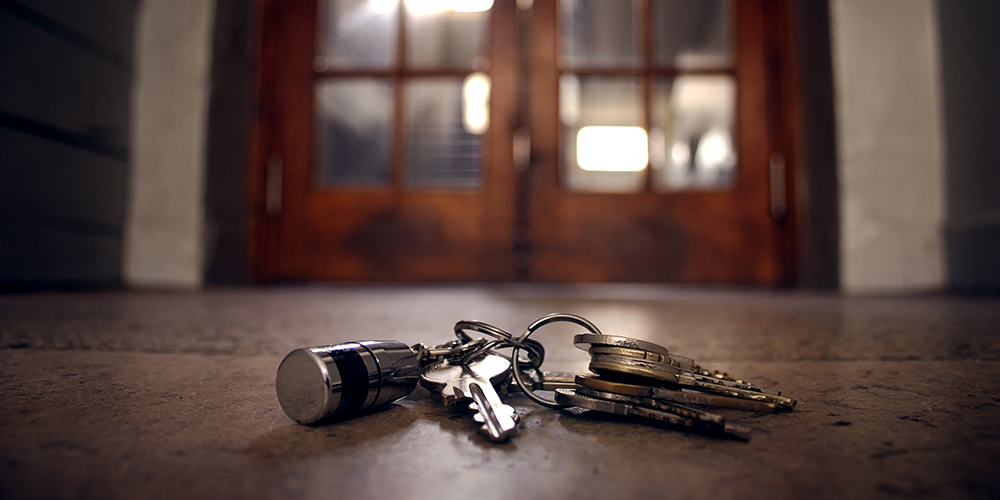
Whether it is your home, your vehicle, or your office, getting locked out sucks. It wastes so much time and creates a lot of unnecessary stress. But if you have the right lock picking tools and the right preparation, then you will never be locked out again. This article is interactive in a way. It can simply stay here on the page and be nothing more than words, or it can be implemented in your life. Once you find a method of prevention that works for you, it will be like you always have your keys. (Sometimes always having your keys is the method.) But the success of any of these methods depends on your willingness to invest time and thought. Time for gathering materials and research, and thought to put your own spin on it. Trying to apply most of these methods right from the page will be a fruitless endeavor. These methods need to work for your lifestyle. Taylor them to be practical for you.
Whether you keep your necessary items in your purse or your pockets, you can get in the habit of checking to see that you have everything before you leave. If you can do something every day for 30 days, you can turn it into a routine that will stick. Stop before you leave the house to see if you have the items you always need with you. I check for my wallet, keys, iPod, and try to leave my cell phone at home when I can. For me, it is as simple as a quick touch to all of my pockets. I have also started this habit any time I stand up, as these items can fall onto the floor, or onto the chair. I had my mother do this and she checks her purse every day to see that her cell phone, keys, wallet, and both pairs of her glasses are on her person. This technique will make sure that you never forget any of the things you use regularly, but will not prepare you for when something needs to be added to your list.
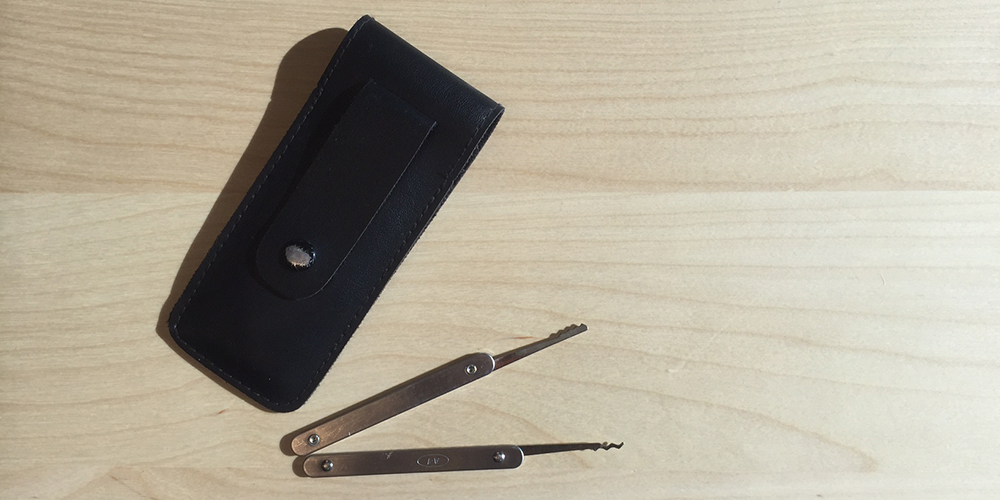
If you know how to pick locks, it would be beneficial to carry around a lock pick set. Chances are you will always be prepared, and never lock yourself out, but you might be able to help out a friend in need one day. Of course, you will need to check your local and state lock pick laws to see if you are allowed to own or carry lock picks. Only ever pick the lock when you are certain that the person giving you permission owns the property. Also be aware of locks that might be beyond your ability to pick.
One bump key should do it. You will also need a hammer or some other instrument to strike the key with. Bump keys might be a little tricky to use, so make sure you know what you are doing. Practice before you use them on any lock that is in use. This might be something you hide on your property, as someone stumbling upon it might not know how to use one. If two locks are from different manufacturers, hide the bump key of the lock that is not the front door.
Before purchasing a set of tryout keys, do some research to find out if the keys should work. These are mainly useful for unlocking older model cars and motorcycles. Chances are they will not work on a standard house lock. These might be perfect for you if you are worried about an auto lockout or you don’t want to hotwire your motorcycle. The set is needed only until you find the type that works on your lock. Once you find that key, it is the only one you will need.
I am not talking about hiding a key in the very cliched way of putting the key under a mat, rock, etc. Have a duplicate key made so that a friend or neighbor can keep it on hand for emergencies. You might also be able to keep a spare key in your wallet or something else that you always have on you. The trick to the spare key is to have it pretty inconveniently placed. Sew it into your wallet or put it under the dirt of a potted plant. Somewhere that it is secure, and will not naturally be seen, or easily fall out. If you choose to have the key inside of something that is out in the open, make sure it is placed there inconspicuously. That means that if you are putting it in a potted plant, get a few plants at the same time.
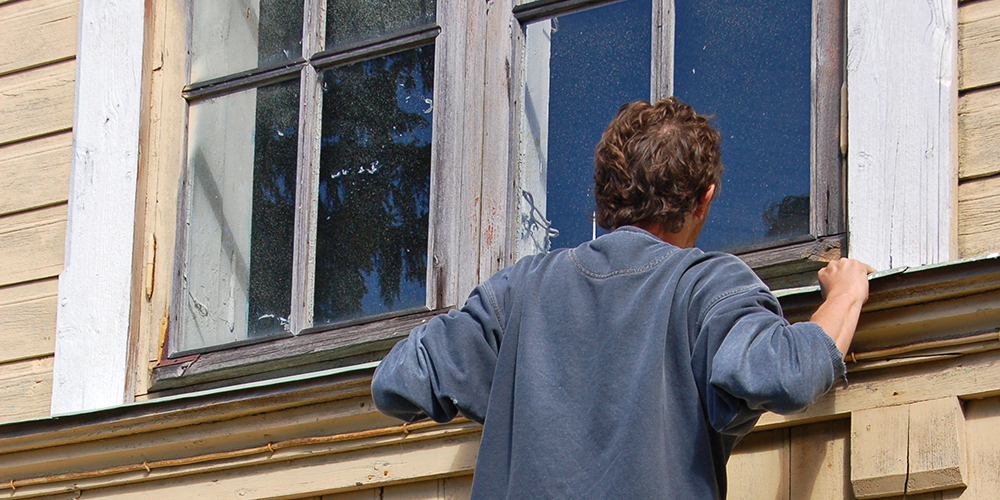
Just because you remembered to lock one door, does not mean that all the entrances are locked. Hope that your spaciness has also kept you from locking your house properly. Check windows and doors.
Having locks that don’t work well can cause many problems. Most obviously, the lock will not open even with the right key. Other than that, if the lock is difficult to open, it may stress the key over time. Once the metal in the key is stressed enough, the key will break. When a key breaks in a lock there is little that having a spare will do. Make sure all of your locks are functioning correctly.
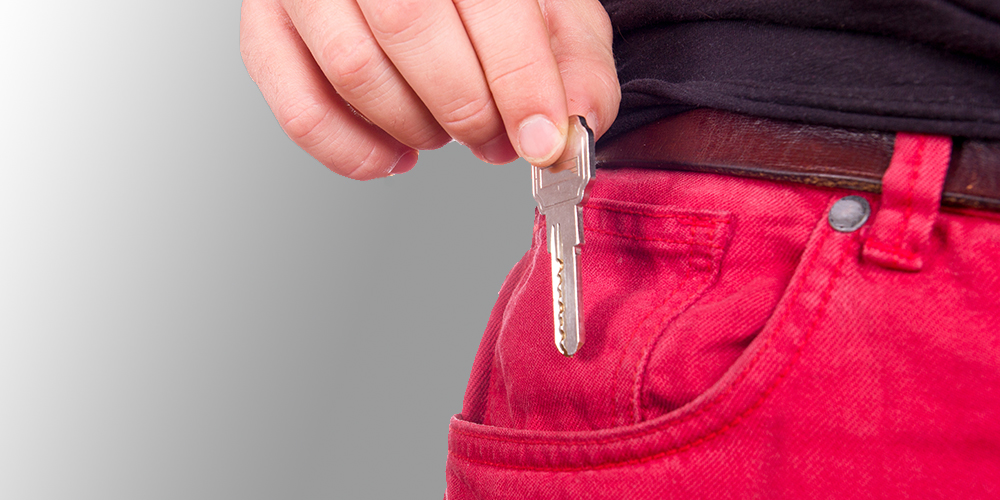
If you have to run back into the house to get something, don’t put your keys on a table. Keep your keys in your hand or put them in your pocket. When you lend your keys to a friend make sure that you get them back as soon as the friend returns. Make sure that your keys are not out in the open among strangers or untrusted people. Knowing where your keys are will ensure that they are not left somewhere or forgotten and it will ensure that key control is never compromised.
If the situation is dire, or you have exhausted all of your options, you should call a locksmith. Some renter’s agreements will allow you to do this at no cost a set amount of times within a specified time frame. For example, you might be able to call the locksmith once every 6 months. You should find your locksmith before you need one, and that way you won’t be stuck debating between the search results of “locksmith near me”. You should use this option before deciding to kick in your door (which will result in a locksmith call), or breaking a window, both of which will leave your security compromised. Those things will also cost more to fix than a locksmith would charge to open the door.
The more you duplicate keys, the further off they will be from the original. Eventually, if you duplicate duplicates enough, the key will not turn the lock easily. Once the key begins not working properly, it is liable to break. If you duplicate a poorly working key, then the new key might not work at all. For this reason, you should always have spares made from the original, or as close to it as possible.
The obvious joke is that you should use your credit card to call a local locksmith. After you are done laughing at that perfectly crafted joke, go ahead and keep your credit card in your wallet. Though movies show this being done with your plastic money, it is better if you use something a little more disposable. After you use it it will most likely be bent out of shape. A laminated card such as an expired gift card should do nicely. This will only work on non-deadbolt bored door locks with the sloped ridge of the bolt facing toward you. If the door opens toward you, then the bolt is most likely facing the wrong direction. If the bolt is the right type, facing the right direction, then place the card in the gap between the door and the jam above the bolt. Slide the card down between the bolt and the and the strike plate. Push the card and push the door. This will open the lock leaving everything, except the card, undamaged.
Sometimes the spare keys that you have are not the only ones in existence. If you live in a building with a doorman, check to see if they carry spare keys to the rooms. Your building manager or super might also have a spare key or a master key that you were not aware of. Try and find out ahead of time who has a key so that you can contact them in your time of need. Also, find out if these keys are available to you. You might not know if policy or circumstance will prevent these keys from being used in lockouts. This can also help you replace your lost keys. Instead trying to find a key code you can ask to have one duplicated from an existing key.
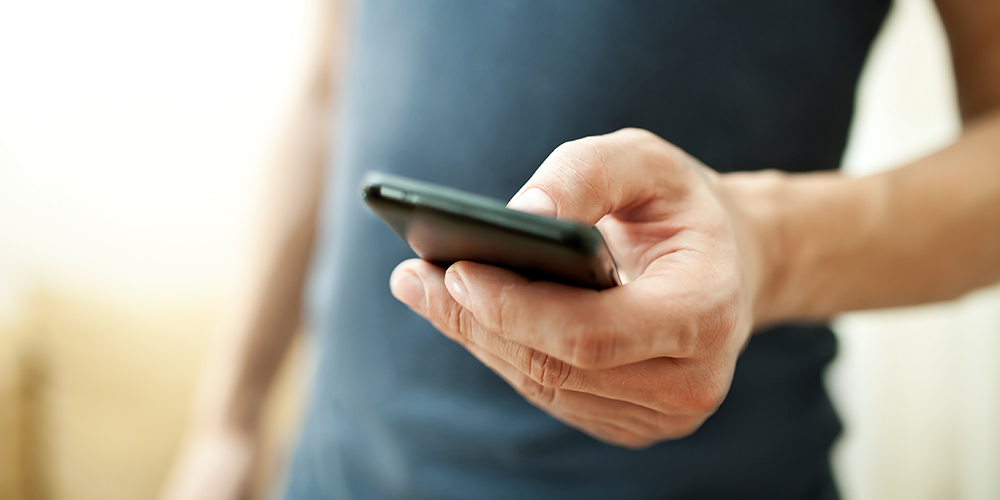
Whether it is a friend with a spare key, the landlord, or a locksmith, have the number pre-programmed into your phone. While you are panicked and distressed, you are not going to be the best detective. Have emergency contacts ready to go so that you know who will help you in these types of situations. Make sure that these people are indeed going to come to your aid. Even if they are a good friend, happenstance might prevent them from being able to help, so make sure that you have more than one emergency contact.
There are many studies on the effects of anxiety on memory and task performance. The best way to ensure that you are performing at your highest level is to remain calm. If you feel yourself beginning to stress out, try to refrain from leaving the area, until you have composed yourself. Obviously this will not work if the stressor is a result of tardiness. If you are late then you must recognize the stress and try to stay aware of the situation. You can move fast without moving destructively fast. Keep track of your belongings, and attempt to notice when you are breaking from your everyday rhythms.
Instead of hiding the key that opens your front door, it might simply open your gate or your garage. That way if the key is ever discovered it will still not open the house. The key will allow you to gain entrance to your property, and that is where the real key can be found. This will work in the case of a separated garage, and with a property that has a backyard that is secure. But the layers don’t need to stop there. You can use any or all of these methods to make sure that you have access to your home without it being vulnerable.
There should be at least one method that you can use on that list to make sure you are not helpless if you ever lose/misplace your keys. But once you have your method(s) implemented, you are not done. Think about the flaws of your security and evolve your strategy. For example, you might want to sew your key into your wallet. But then if your wallet is stolen, the thief will have your address (which is on your ID) and your house key. Then perhaps that key does not open your front door, and you layer it with another security measure. Refine and rethink your precautions to keep them practical and effective. Do not lower your security out of fear of being locked out, because there is always a way back in. Try your best to have your cake and eat it too. A balance can surely be found in any lifestyle that protects your property from robbery, and you from a lockout. This list should not be used to compromise the security of another individual. Handle your protection in accordance with all laws. And be safe.
Category: Automotive, Car Keys, Commercial, How To's, Residential, Safety & Security